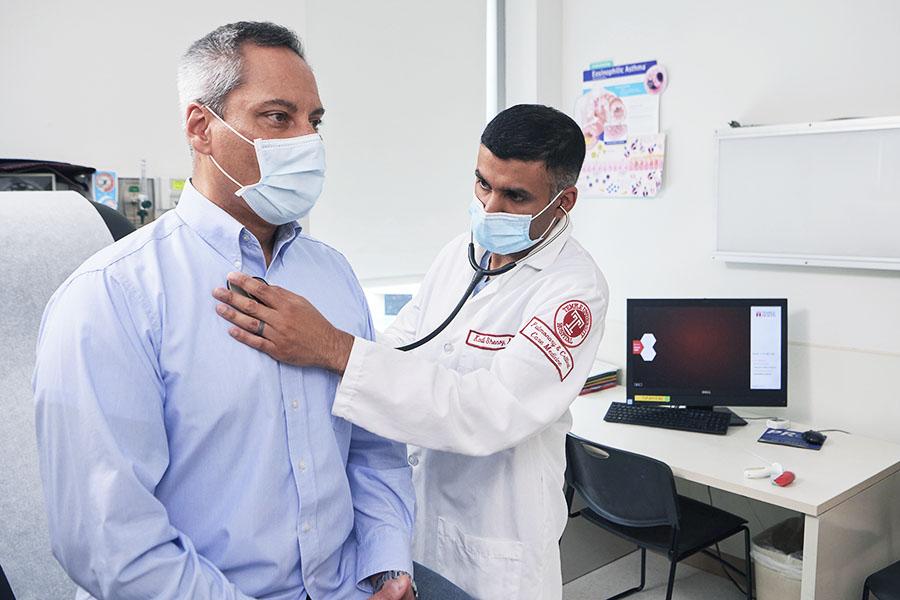Ulcerative colitis and Crohn’s disease are inflammatory bowel diseases (IBD) that affect the gastrointestinal tract. However, it’s important to distinguish between these conditions, as they require different therapies. Early and accurate diagnosis of your digestive condition can lead to faster treatment, which results in better outcomes and a reduced risk of hospitalization, surgery and other serious complications.
Similarities
There are many similarities between ulcerative colitis and Crohn’s disease – so many, in fact, that the two conditions sometimes seem interchangeable to many individuals. Similarities between these IBD conditions include:
- Long-term inflammation of the digestive tract
- Digestive discomfort and symptoms, such as:
- Stomach cramps and pain
- Diarrhea
- Constipation
- Urgent need to have a bowel movement
- Feeling as though your bowel movement was incomplete
- Rectal bleeding
- Loss of appetite
- Weight loss
- Fatigue
- Night sweats
- Irregular periods
- More likely to affect teenagers and young adults
- More likely to run in families
- Diagnosed with a colonoscopy
Differences
While there are several similarities between Crohn’s and ulcerative colitis, key differences set these conditions apart – and call for different treatment approaches. Differences between these IBD conditions include:
- Location of inflammation – Ulcerative colitis only occurs in the colon, but Crohn’s disease can occur anywhere along the digestive tract.
- Degree of inflammation – Ulcerative colitis causes consistent inflammation along the entire colon, compared Crohn’s disease that causes intermittent inflammation around healthy tissue.
- Unique symptoms – Ulcerative colitis and Crohn’s disease are each more likely to cause certain symptoms. For example, individuals with ulcerative colitis may experience rectal bleeding or blood in stools more often than individuals with Crohn’s. Additional and unique symptoms of Crohn’s disease include mouth sores, anal tears, ulcers, infections and narrowing of the intestine.
Treatment Options
The primary goal of treatment for Crohn’s disease and ulcerative colitis is to reduce inflammation. Your gastroenterologist will work closely with you to develop a treatment plan that addresses inflammation, helps manage symptoms and reduces flare-ups.
Treatment plans will vary based on your specific condition and the severity of inflammation and symptoms. Generally, Crohn’s and ulcerative colitis are managed with a combination of medication and diet and lifestyle modification. In some cases, when a nonsurgical approach fails to address your condition, your gastroenterologist may recommend surgery.
Learn more about treating Ulcerative colitis or Crohn’s disease.
Ready for an Appointment?
If you're experiencing signs or symptoms of Crohn's disease or ulcerative colitis, schedule an appointment or call 800-TEMPLE-MED (800-836-7536) today.
Learn more about our doctors and care team who diagnose and treat Crohn's disease & ulcerative colitis.

